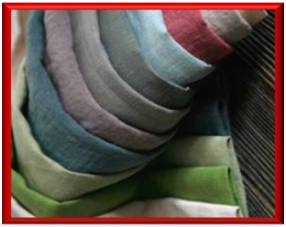Recyclable Polyester – At the end of a fabric’s life, Recyclable Polyester can be recovered and recycled to create new raw material for future products.
Post-Consumer Recycled Polyester – The Post-Consumer Recycled Polyester yarns are made from recycled plastic bottles. (16 20oz. bottles = 1 yard of fabric).
Post-Industrial/Pre-Consumer Recycled Polyester Post-Industrial/Pre-Consumer Recycled Polyester yarns are made from plastic chips that have been rejected from bottle companies during the process of making bottles for consumers.
Wide Spec Polyester – Fibers are produced using a “Wide Spec Polyester chip” that maximizes the value of waste materials throughout the manufacturing process, therefore minimizing the amount of waste at the end of the process.
Organic Cotton – Sustainable, rapidly renewable, and biodegradable fiber that has been grown through a carefully guided and strictly regulated process without pesticides or synthetic fertilizers. Organic cotton is also naturally hypoallergenic.
Bamboo/Bamboo Rayon – Sustainable, rapidly renewable and biodegradable fiber made from bamboo plants that are replenished without environmental impact. It is also naturally hypoallergenic.
Hemp – Sustainable, renewable and biodegradable, hemp requires little to no pesticides or herbicides, it controls erosion of the topsoil, and produces oxygen.
Flax – Sustainable, renewable and biodegradable, naturally grown flax fiber is soft, lustrous and flexible. It is stronger than cotton fiber but less elastic. Most linen fabrics are made from flax fiber.


